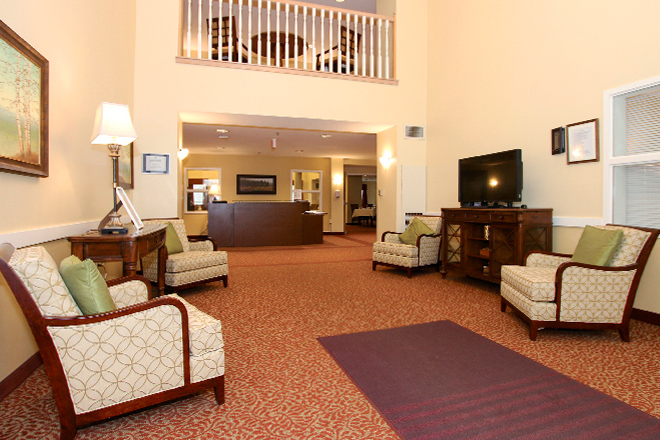Massachusetts Landlord-Tenant Laws
This part of the site is where we discuss current landlord-tenant laws and regulations for Massachusetts as they stand today. (For proposed legislation, see our Housing Policy page.) This is a guide for DIY landlords. Remember to read the laws thoroughly as to avoid legal disputes, fines and violations.

Laws by Topic
Landlording is a highly regulated business. Here are the major areas of Massachusetts landlord–tenant law:
- Buildings
- Electronic Signatures
- Eviction
- Marijuana
- Rental Agreements
- Gun-free Leases in Massachusetts: Property Rights v. Self-Defense Rights (2019)
- Late fees
- Rent control
- Rental forms
- Security Deposit Law
- Should You Take Last Month’s Rent at Lease Signing?
- Special Rules for Victims of Domestic Violence, Sexual Assault, Rape, or Stalking (Chapter 186 Sections 23 - 29)
- Yard Work in Lieu of Rent? (2018)
- Renter Relations and Problems
- Short-term Rentals
- Tenant Screening
- Tenant Relations
- Tax Reform 2018
- Full text of Trump Republican tax form passed in December 2017
Here at MassLandlords.net we're interested in teaching and advocating appropriate changes to the law. Unlike all the tenant-facing sites out there, this site is written for landlords and policy makers.
So much of what's written online is written from a tenant's perspective. It also behooves you to read through MassLegalHelp.org, in particular, their tactics page. It's comprehensive, and it's a bit like reading the other team's playbook.
Historical Covid-19 Legislation
Laws by Chapter and Verse
The legislature works by drafting “bills.” When passed they are referred to as “acts” of the legislature. Acts can create “statutes” or can delegate responsibility to create “regulations.” The “statutes” are also known as the “Massachusetts General Laws” (MGL). The “regulations” created by government agencies are the Code of Massachusetts Regulation (CMR). Regulations and statutes have equal power and enforceability, although the wording of regulations was never voted on.
- MGL Chapter 4, Section 7 defines statutory terms including “land,” “real estate,” “gender identity” and “race.”
- MGL Chapter 37, Section 11 requires sheriffs to serve civil process.
- MGL Chapter 40P bans rent control.
- MGL Chapter 62, Section 6e establishes tax credits for lead paint abatement or interim control.
- MGL Chapter 93 Section 49 prevents landlords from publishing or threatening to publish facts about a tenant's payment history.
- MGL Chapter 93 Sections 50 through 68 are the Massachusetts Fair Credit Reporting Act.
- MGL Chapter 94G, Section 2 states that landlords may prohibit the growing of marijuana in their rental units.
- MGL Chapter 93H creates regulation on the protection of consumer information, see also 201 CMR 17.
- MGL Chapter 110g, Section 7 authorizes electronic records and signatures.
- MGL Chapter 111, Section 127L is the “repair and deduct” statute.
- MGL Chapter 111, Section 197 is the lead law (see also 105 CMR 460).
- MGL Chapter 139, Section 19 provides shorter eviction notice times for “common nuisance,” including drugs, prostitution, illegal gambling and guns.
- MGL Chapter 142A Section 2 defines what should be in a home improvement contract. (See the rest of Chapter 142A if you are a home improvement contractor).
- MGL Chapter 143 Section 3S requires absentee landlords to post their name and contact information in view of the public and/or residents.
- MGL Chapter 148, Section 26C indirectly requires buildings with six units or more to have central fire alarm systems.
- MGL Chapter 151B Section 4 defines Massachusetts discrimination (remember separate federal law also applies).
- Section 5 defines maximum discrimination fines.
- MGL Chapter 164, Section 139 is the law on net metering for solar panels.
- MGL Chapter 175 Section 99 requires landlords of multifamilies to disclose part of their insurance policy.
- MGL Chapter 186 regulates late fees, eviction notices, security deposits, last month's rent, and the majority of landlord-tenant behavior.
- MGL Chapter 186, Section 31 requires any notice to quit for nonpayment be accompanied with a form detailing information regarding rental assistance programs, trial court rules, orders and eviction restrictions, and other information.
- 15B: Right to enter, move-in monies, security deposits and more
- MGL Chapter 221, Section 46 allows natural person parties to represent themselves.
- MGL Chapter 239 regulates rent withholding, eviction move-out’s, animal welfare, the treatment of victims of domestic violence and more.
- MGL Chapter 239 Section 15a, slow to be added to the official statute, made permanent delays first enacted as Chapter 257 of the Acts of 2020.
- MGL Chapter 272, Section 99 prohibits audio recording via security cameras or other non-obvious means.
- 105 CMR 410 is the state sanitary code.
- 105 CMR 460 regulates lead and lead hazards (see also MGL Chapter 111, Section 197).
- 201 CMR 17 standards for the protection of personal information of residents of the Commonwealth (written information security plans).
- 220 CMR 29 Billing procedures for residential rental property owners cited for violation of the state sanitary code 105 CMR 410.354 or 105 CMR 410.254 (cross-metering).
- 254 CMR 7.00 defines part of the reason why realtors can charge an application fee (but landlords cannot), and see the rest of the statutes for more of why landlords cannot.
- 310 CMR 700 prohibits the use of domestic equipment like lawnmowers and power saws after 9pm and before 7am.
- 780 CMR state building code and inspection frequencies.
- 803 CMR 5 Criminal Offender Record Information (CORI) - Housing.
- 940 CMR 3 Attorney General's list of unfair and deceptive practices (try also 940 CMR 3).
- 940 CMR 38 Attorney General's regulations against "junk fees" in connection with marketing, sales and other agreements sale of products (including rentals).
Bill Explainers
- The Massachusetts Security Deposit Law, Explained
- 2024 Changes to Security Deposit Law, Explained
- 2024 Bond Bill: Accessory Dwelling Units by Right, Explained
- 2024 Eviction Sealing Law, Explained
- House Bill 5100, Section 269 Explained
Cases
The following may be interesting reading:
- Blackett v. Olanoff, 371 Mass. 714 (1977) - Quiet Enjoyment: landlord found against for not mediating conflict between two tenants.
- Boston Housing Authority (BHA) v. Hemingway 363 Mass. 184 (1973) - Created the implied warranty of habitability
- Cambridge Street Realty v. Stewart (2018)
- Carpenter v. Mitchell (Massachusetts Appeal Court), 2020 - 93A requires demonstration of harm.
- Castenholz v. Cairas, 21 Mass. App. Ct. 758 (1986) - Landlords who return a security deposit in full with interest before 30 days after the end of tenancy are probably not liable for triple damages.
- Clemons v. Niedzwiecki (2016) - A landlord cannot refuse to work with a particular Section 8 administrator, even if they would work with other Section 8 administrators.
- Davis v Comerford (2019) - Rent escrow cannot be summarily denied.
- Gallo v Marinelli (2016) - Interest on last month's rent.
- Hatcher Decision, 479 Mass. 542 (2018), 479 Mass. 1027 (2018) - Unauthorized practice of law: Individual property manager sanctioned but not charged with 93A violation for filing a summons and complaint where he was neither the owner nor the lessor.
- Havens Realty vs. Coleman (1982) - Discrimination testing: used the phrase "any person" to breathe an implied testing function into the Civil Rights Act, making it not entrapment but rather Congressional intent.
- Karaa v. Yim - Tenant can offer security deposit as compensation for breach of lease, and if landlord obtains signed waiver and uses the deposit accordingly, triple damages do not apply.
- LAS Collection Management v. Pagan (2006), in which a property manager represented a landlord and had their case dismissed.
- LeClerc v. Rivera (Western Housing Court, 19-SP-1378, Dec. 30, 2019), which required “use and occupancy” language in a notice to quit to be limited to partial payments that did not cure.
- Likousas v. Makris (Northeast Housing Court) 2020 - oral contracts are enforceable against family members.
- Lindquist v. Stella (2018)
- Matorin v Commonwealth (2020), during the eviction moratorium, tenant stated he did not have to pay rent in April because “the Governor said I do not have to.”
- Rinaldi v. Board of Appeal of Boston, 50 Mass. App. Ct. 657, 660, 741 N.E.2d 77, 79–80 (2001) - Zoning and building code have different purposes; zoning may not be allowed to consider plans in some circumstances.
- Schonton v. MPA Granada Highlands, LLC (United States District Court), 2020 - a written qualifier requiring ID from foreign nationals is not in and of itself discriminatory.
- Varney Enterprises, Inc. vs WMF, Inc. (1988), corporations must be represented by an attorney. Subsequent case law extended this to LLCs and Trusts. The only exceptions are found in small claims court.
- Youghal, LLC v Entwistle (Supreme Judicial Court), 2020 - landlords must still prove receipt of notice to quit.
Municipal Ordinances of Note
This is not an exhaustive list.
City of Cambridge
Broad Applicability
The laws listed above are generally applicable to all residential housing, including single family homes, apartments, condos, rooms, rooming houses, and assisted living facilities (in dispute, see below). If you operate short-term rentals (e.g., Airbnb), the provisions on safety ought to apply and the provisions on tenancy termination might not, but you will have to talk with an attorney in the event a short-term renter overstays.
A Fee Too Far: Assisted Living Facilities Covered by Landlord-Tenant Law
Is an assisted living facility a lessor? No, said the judge in the March 2018 case of Ryan V. Mary Ann Morse Healthcare Corp. Yes, said the judge in the August 2018 case of Hennessy v. Brookdale Senior Living Communities, Inc., reiterating his decision in last year’s case of Gowen v. Benchmark Senior Living, LLC.

Assisted living facilities offer a level of community amenity not contemplated by the decades-old landlord-tenant law. Brookdale Eddy Pond West, in Auburn, one of the communities being sued.
In the Ryan case, Judge Christopher K. Barry-Smith ruled that by enacting a particular statute to regulate assisted living facilities (G.L. c.19D) the Legislature implicitly exempted them from landlord-tenant law. Therefore, the facilities are not covered by G.L. c.186, §15B(1)(b), the provision that spells out the exclusive list of items that landlords can require prospective tenants to pay at the start of a tenancy:
At or prior to the commencement of any tenancy, no lessor may require a tenant or prospective tenant to pay any amount in excess of the following:
(i) rent for the first full month of occupancy; and,
(ii) rent for the last full month of occupancy calculated at the same rate as the first month; and,
(iii) a security deposit equal to the first month’s rent provided that such security deposit is deposited as required by subsection (3) and that the tenant is given the statement of condition as required by subsection (2); and,
(iv) the purchase and installation cost for a key and lock.
But in the Hennessy and Gowen decisions, Judge Kenneth W. Salinger reached the opposite conclusion. He ruled that when the Legislature enacted c.19D it expressly exempted assisted living facilities from some statutes, but G.L. c.186, §15B was not among those exemptions. So an assisted living facility is a “lessor.” Therefore, at the outset of the tenancy it can only require residents to pay first and last months’ rent, a security deposit, and the cost of installing a new lock and key. Demanding any additional payments would violate the statute.
In the Gowen case, Judge Salinger left open the possibility that facilities could charge a community fee for “services that are beyond the scope of a typical residential tenancy... without running afoul of §15B.” In Hennessy, however, the plaintiff claimed that the facility used the community fee, at least in part, to prepare her apartment for occupancy.
According to reports in Massachusetts Lawyers Weekly, Brookdale Senior Living Communities (the defendant in the Hennessy case) will be taking the matter to the Appeals Court. If the Appeals Court upholds Judge Salinger and decides that assisted living facilities are, like regular landlords, only allowed to require the charges listed in c. 186, §15B, and that any “community fees” that pay for services typically associated with residential tenancies are unlawful, the stage will be set for class-action suits.
Regardless of whether an appeal is filed, or whether assisted living facilities are properly lessors, the law itself may need to be amended. There are good economic reasons why an asset-rich, income-poor resident may wish to pay a higher percentage of their rental costs up-front. To the extent the law restricts freedom of payment, it restricts the diversity of housing available and diminishes the freedom and dignity of the people it means to protect.
We will report on any appeal if it develops.
Obligatory Disclaimer
The content and materials provided on this site are meant to be for educational and informational purposes only. Nothing on this site is meant to act as legal advice or create an attorney-client relationship. Much of the content is provided by third-parties and is not vetted by MassLandlords.net. We advise you contact an attorney.
Think of this section as “one landlord talking to another.”
Get Involved
The best thing you can do is to join MassLandlords.net as a digital member or join one of your local organizations. If you want to contact your state reps or senators individually, you can find their contact information here (search by your zip code at right).







